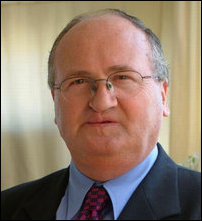

Briefly, a thousand details-“pedantries” as Field Marshal Gebhard von Blücher was to call them later-that had originally served a useful purpose now became detached from reality, so to speak.

One had (General) von Saldern earnestly debating the pros and cons of increasing the regulation marching speed of seventy-five paces a minute to seventy-six according to the other, when he went to heaven and explained his system of maneuvers to Gustavus Adolphus, the king answered that he was not aware that in the years since his death the earth had been made flat. However, the extent to which the culture of war had taken over from war itself is nicely illustrated by two contemporary stories. Many were especially devised for the king’s benefit the most spectacular, if not the most useful, movement of all was turning a battalion on its own axis, like a top… The first illustrates the danger of military culture divorcing itself from actual war, the second the consequences of trying to separate military institutions from the culture of war.Īfter the end of the Seven Years War in 1763, the Prussian army routinized itself to the point where complex and largely useless drills came to be everything. Rather than try, let me give two examples from it, both from German military history. It is impossible to summarize a book this rich in a column. At the same time, war and those who fight it develop their own cultures, cultures which shape how war is carried on far more powerfully than do rational calculations of military effectiveness. No human culture is imaginable that excludes war. Rather, it is a fundamental part of human nature and culture. War exists not to serve the interests of states, it argues, or anything else. The Culture of War offers one of the most important lessons. But as Boyd often said, we have learned a few things since Clausewitz’s day.

I happen to think Clausewitz still offers much of value, as do many things Prussian. Like John Boyd, van Creveld has engaged in a running feud with Clausewitz. Titled The Culture of War, it targets, hits and obliterates Clausewitz’s assertion that war is merely the continuation of politics by other means.

Van Creveld’s latest book has just come out, and it is a very big book indeed. To date, his big books include The Transformation of War, The Rise and Decline of the State and Fighting Power. All of Martin van Creveld’s books are worth reading, but a few are “big books,” books so important that anyone interested in war must read them.


 0 kommentar(er)
0 kommentar(er)
